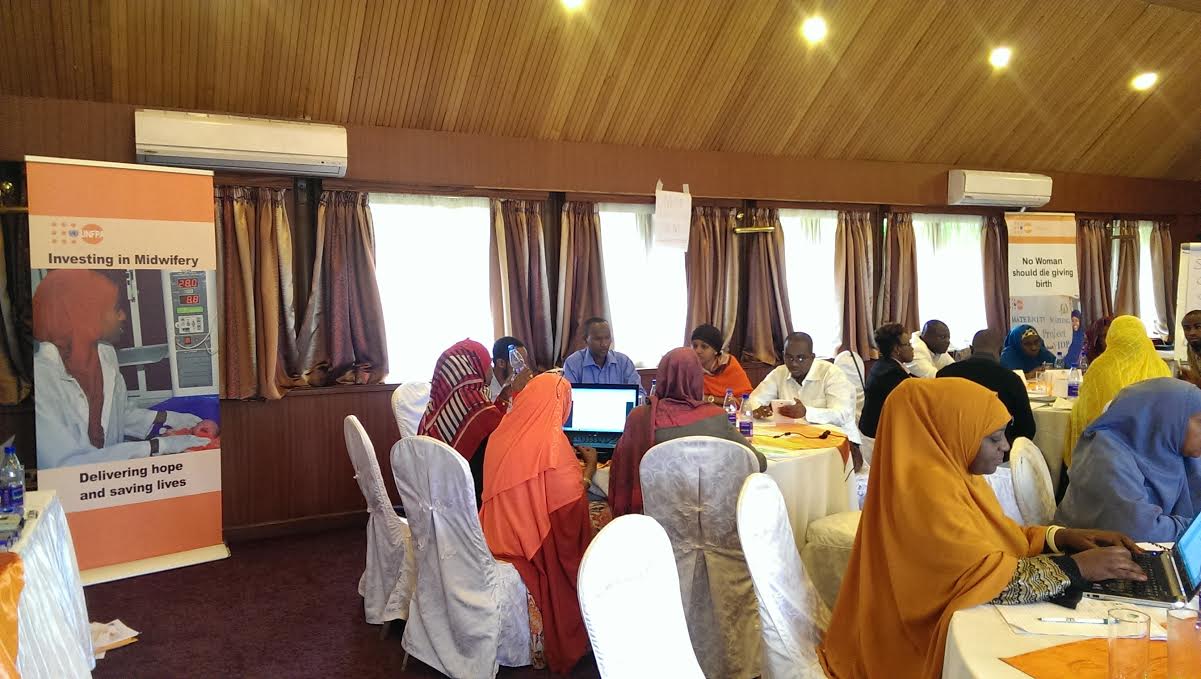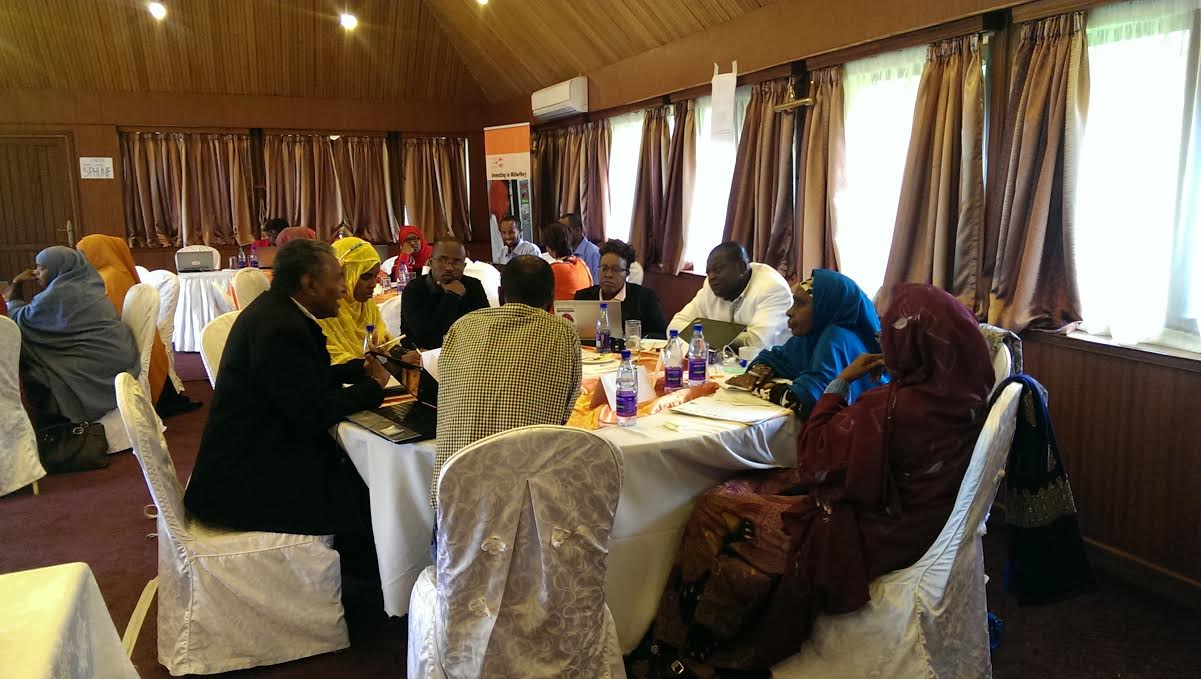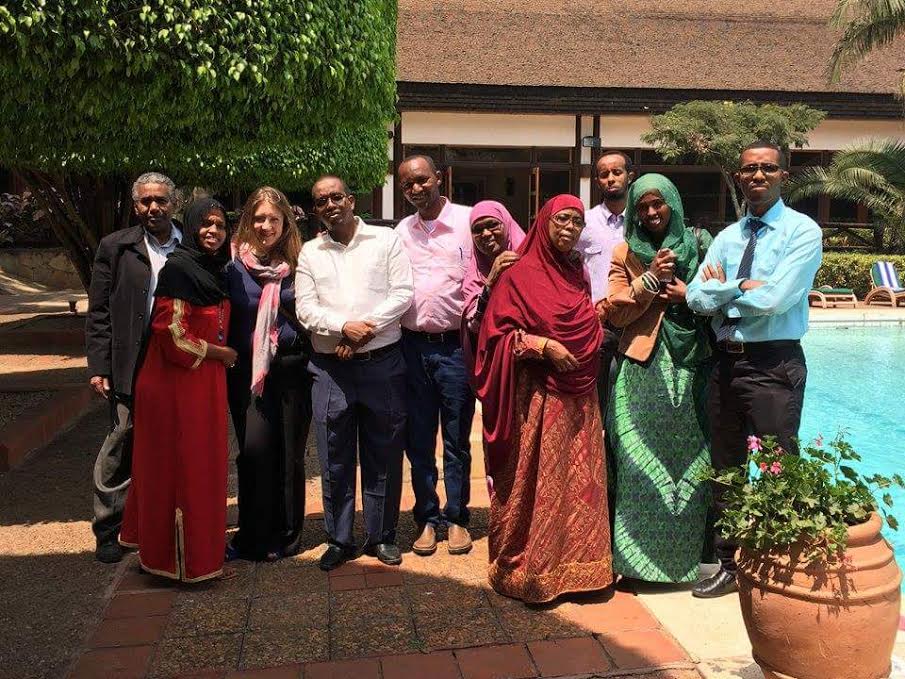Representatives from midwifery schools, associations, and ministries of health for the Federal Government of Somalia, Puntland and Somaliland came together with UNFPA from August 17 to 19, to chart a way for enhanced improvements in the midwifery profession with a focus on midwifery education across the three zones of Somalia.

A revised midwifery curriculum, designed in line with the International Confederation of Midwives curricula, was introduced during the three-day workshop, according to UNFPA Somalia International Midwifery Program Specialist Ms. Emily Denness. The curriculum has been contextualised to Somalia.
"During the three day workshop, participants identified process gaps, explored ways to fill these gaps to achieve quality midwifery education in some of the most challenging environments in the world. Solutions, inspirations and plans for advancement were developed although the participants from each region identified their unique challenges," said Ms. Denness.
The revised midwifery curriculum clearly integrates, among others, female genital mutilation (FGM) in recognition of the key role that midwives can play in eliminating the harmful practice. Some ideas shared in relation to methods for teaching this vital, but sensitive subject, included student discussions with religious leaders, setting FGM health promotion activity design as projects to develop the skills and resources in preparation for the time the midwife qualifies, according to Ms. Denness.

Key issues that emerged from the workshop:
• International standards for competence, through the numbers of births and other care episodes, were agreed as a minimum, aligning the experience levels of a Somali midwifery student with midwifery students around the world.
• Child spacing methods, counselling and provision have been integrated as an essential component of midwifery education, enabling midwives to provide child spacing methods in the areas they work in after qualification. This is crucial in increasing accessibility to contraception in a country with an unsustainable average birth rate of 6.7.
• Stronger relationships between the ministries of health and the ministries of education were seen to need development in order to maximise on the opportunities recognised in midwifery education, both in reducing maternal and infant mortality and morbidity, and ensuring the standards of the academic qualification. This recognition led to a commitment from ministries of health to reach out to collaborate with the ministries of higher education, which will lead to the determination of the level of qualification the curriculum would achieve.
• Tutor and academic development as well as resource network solutions for a growing number midwifery education professionals, were seen as key for training quality midwives, and the WHO midwifery educator core competencies were introduced to guide progression. Other opportunities seen to be appropriate were tutor exchange programmes both within and across zones, and internationally, research development and publication submissions, and attendance at key conferences.
The successful workshop led to a unified commitment to improving midwifery education, the midwifery profession, and through them the lives of Somali mothers, children and communities.

For more information, please contact: UNFPA Somalia Communications Specialist Pilirani Semu-Banda -

